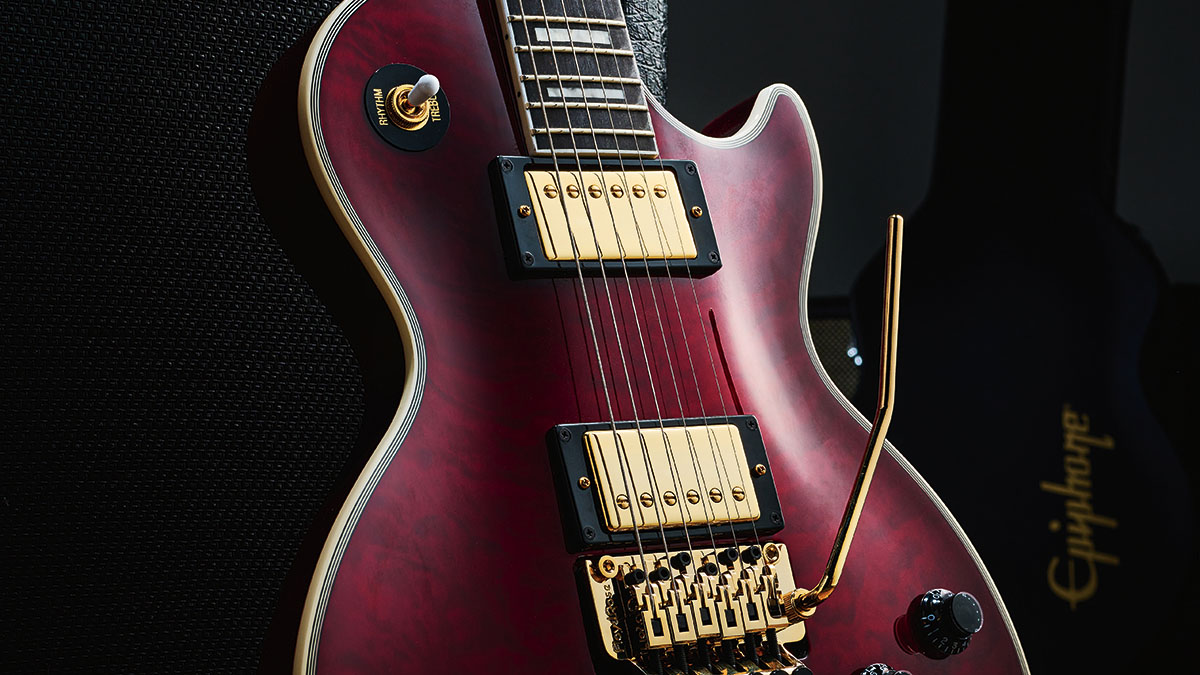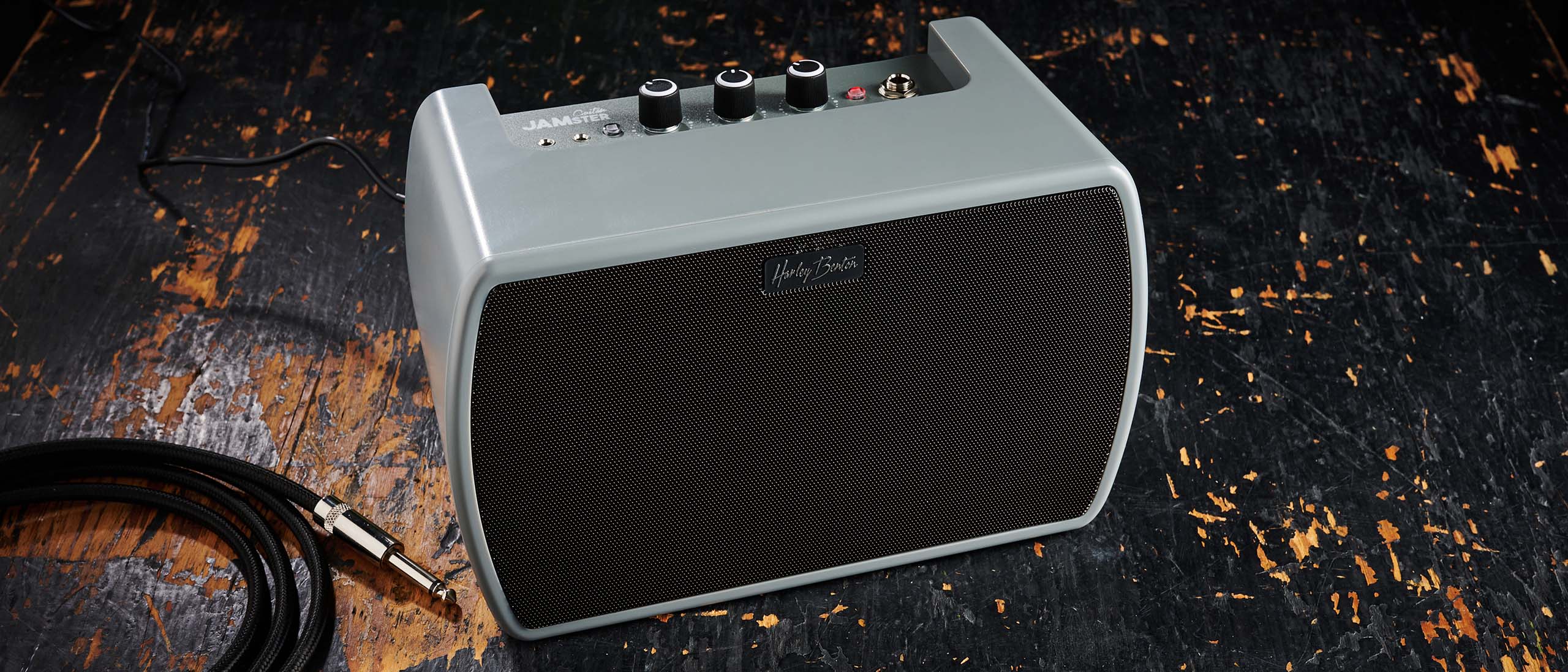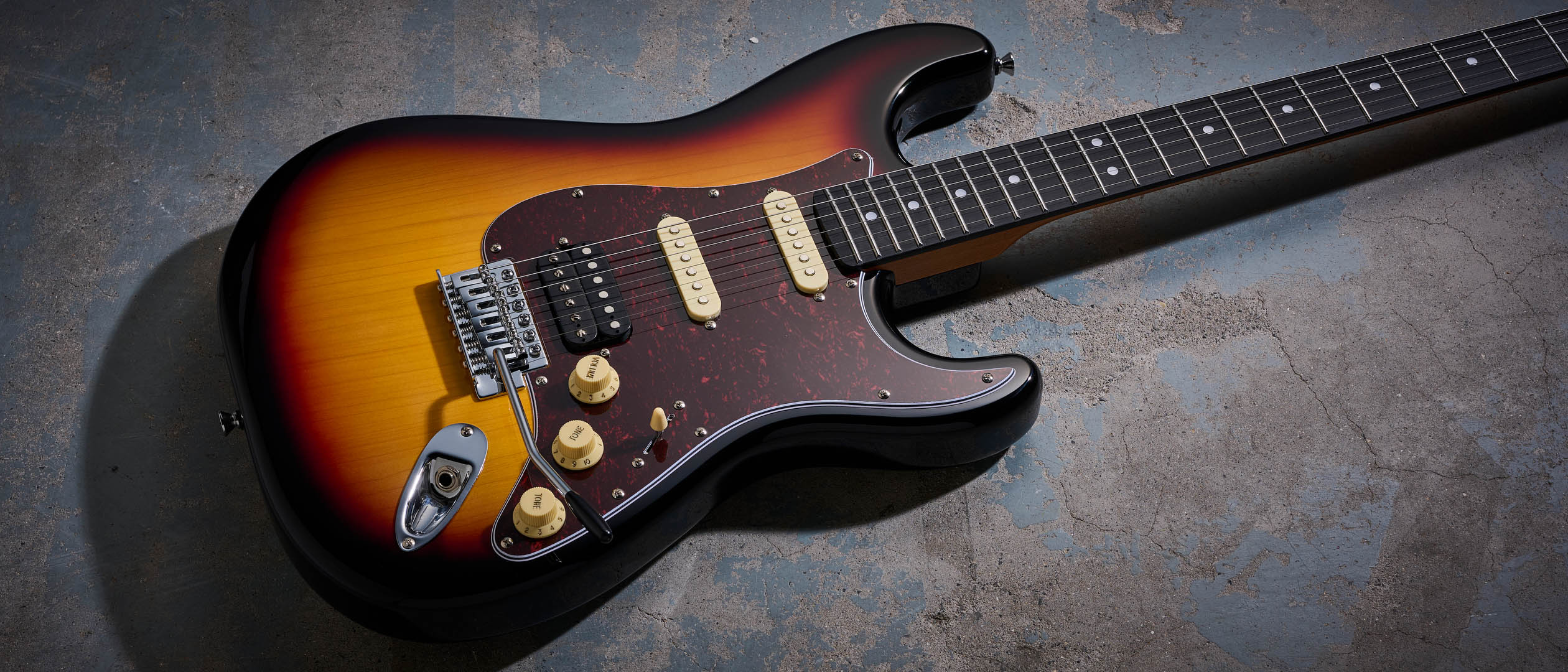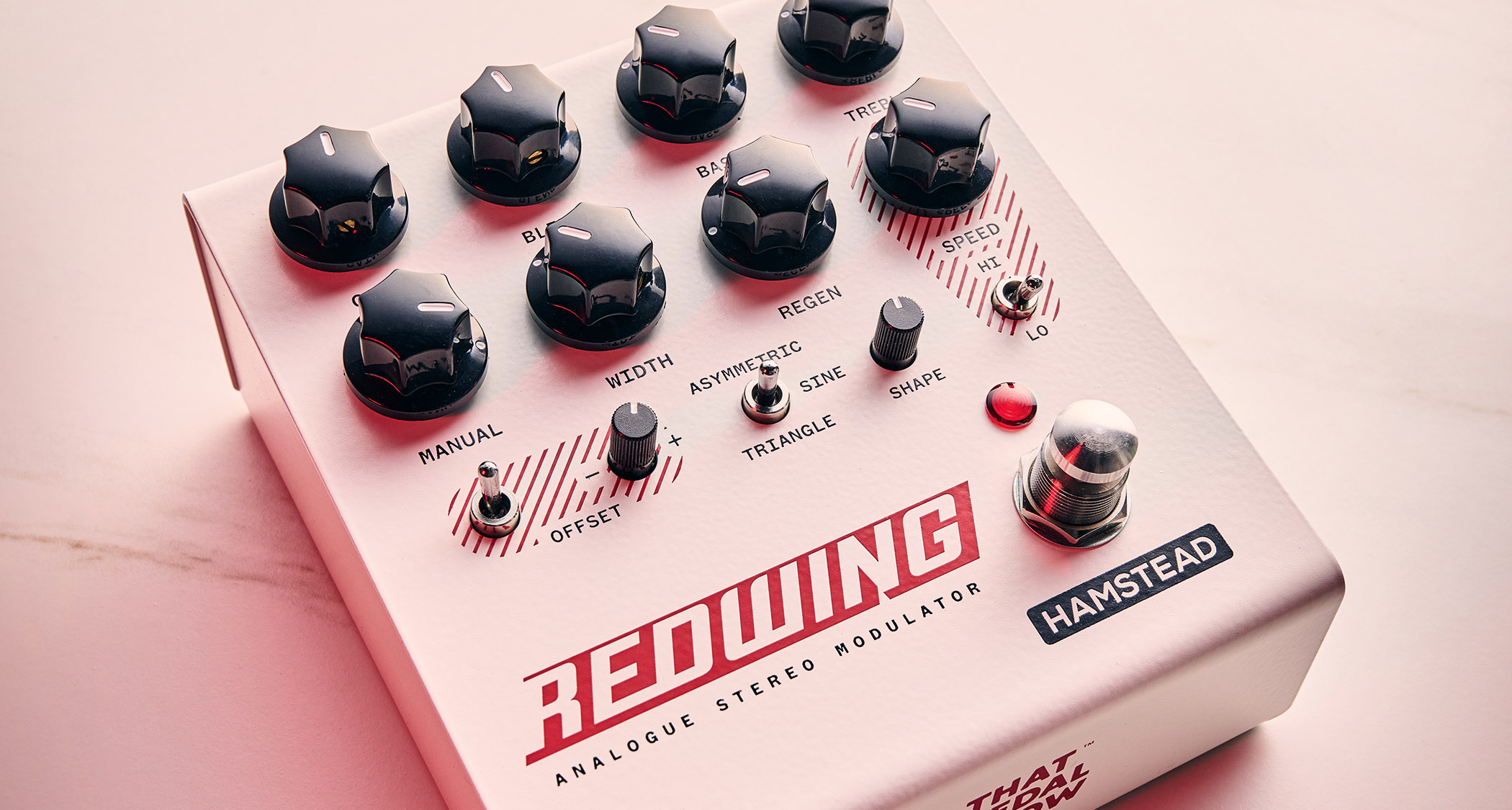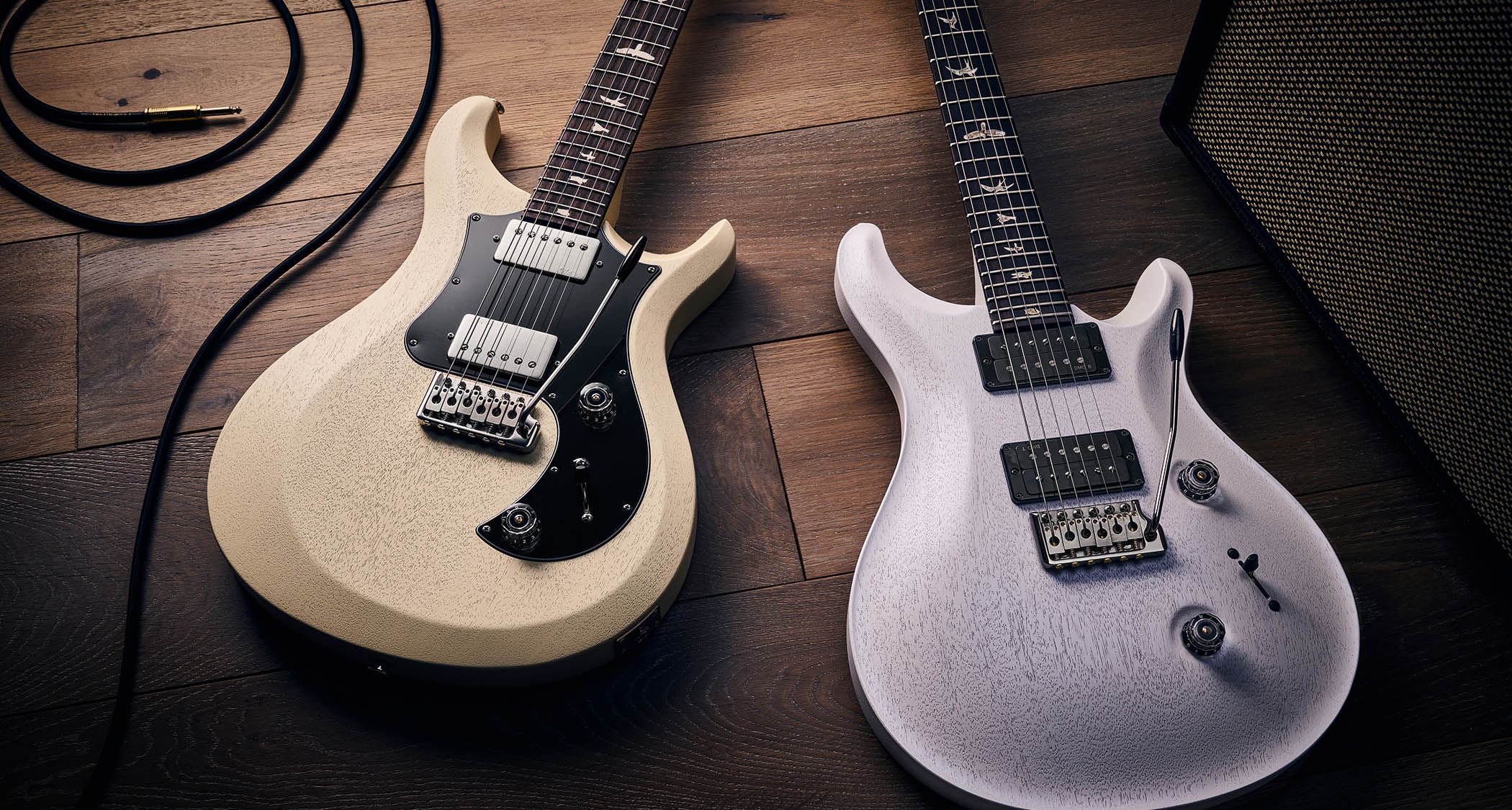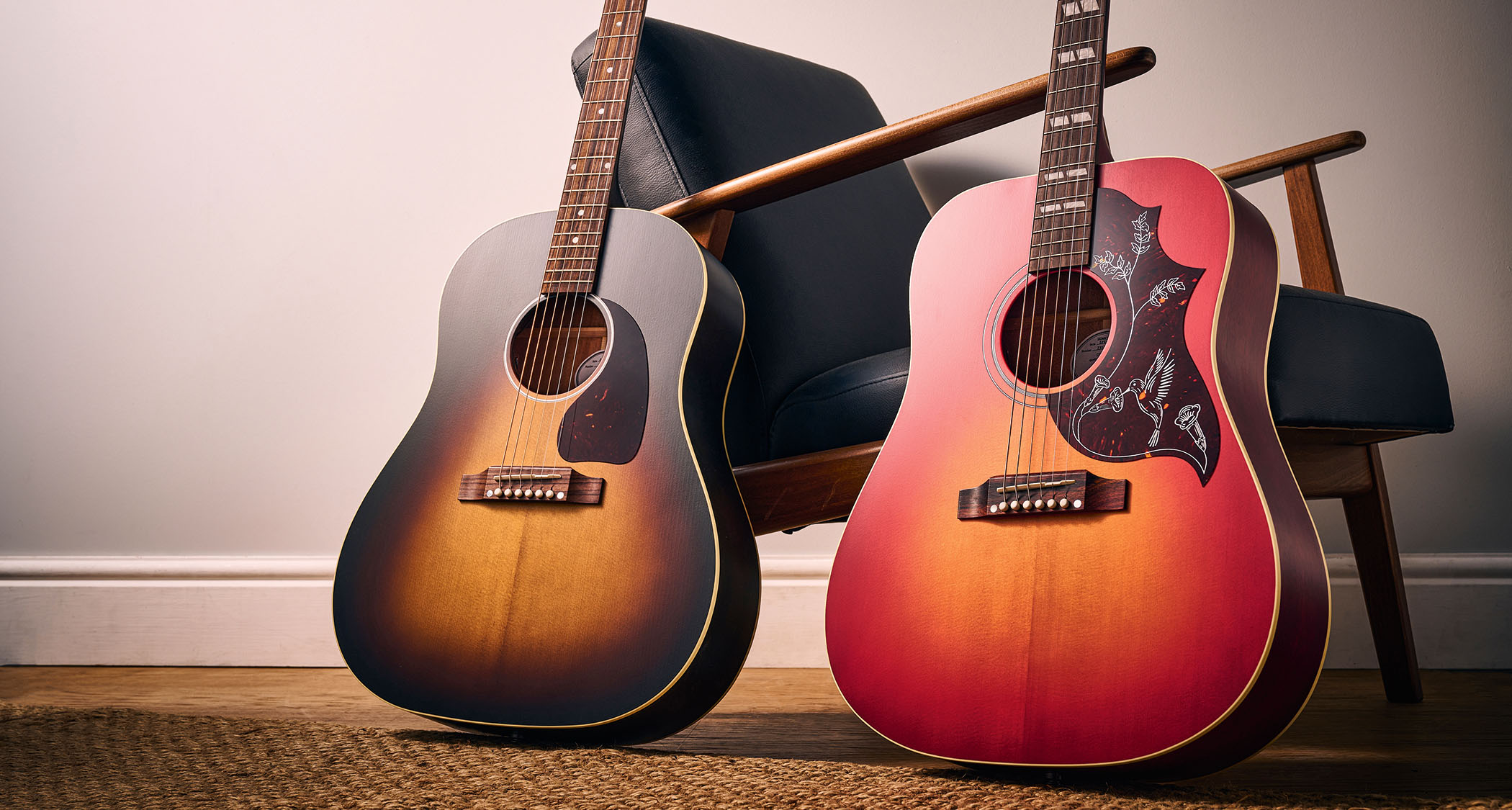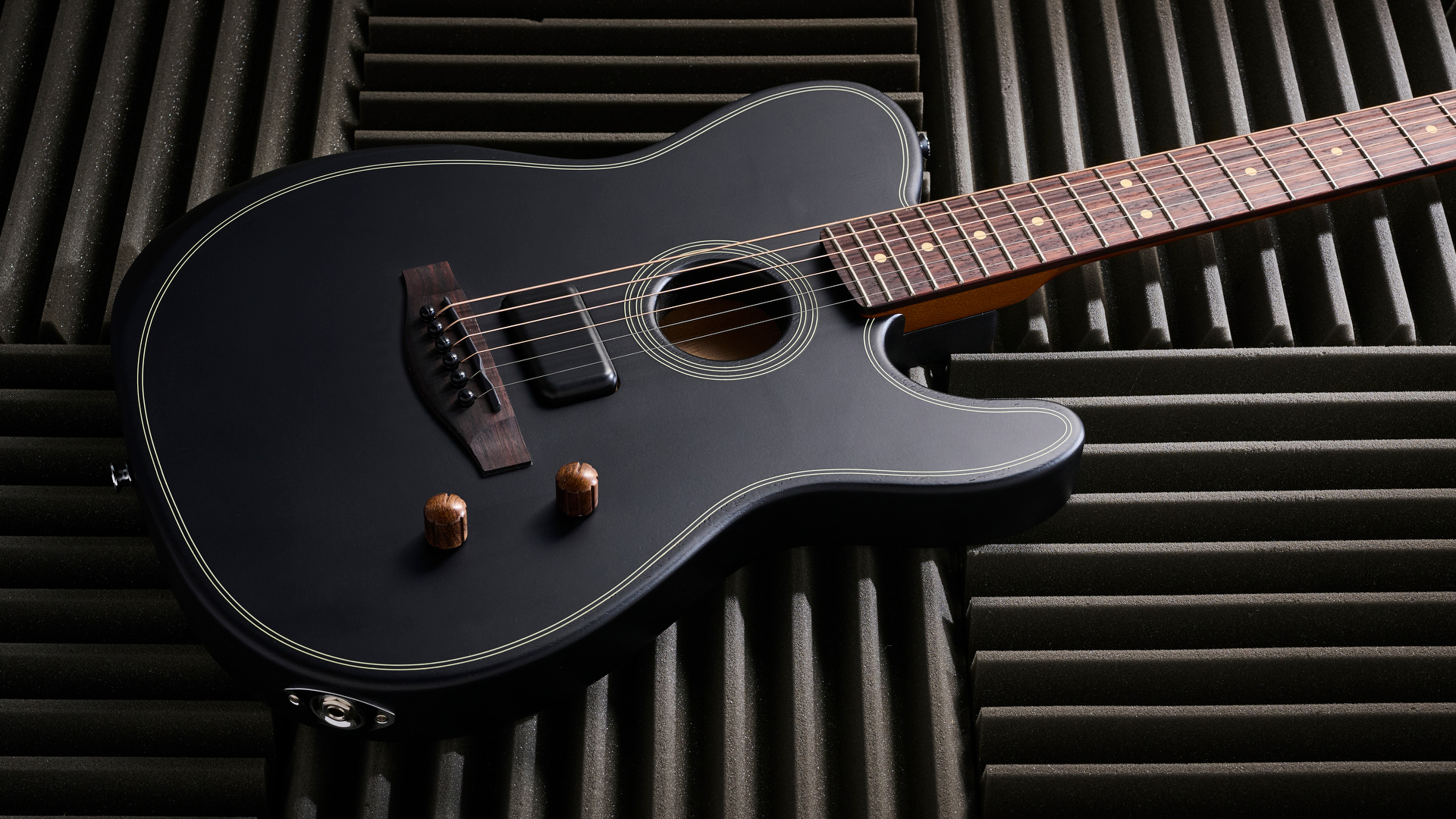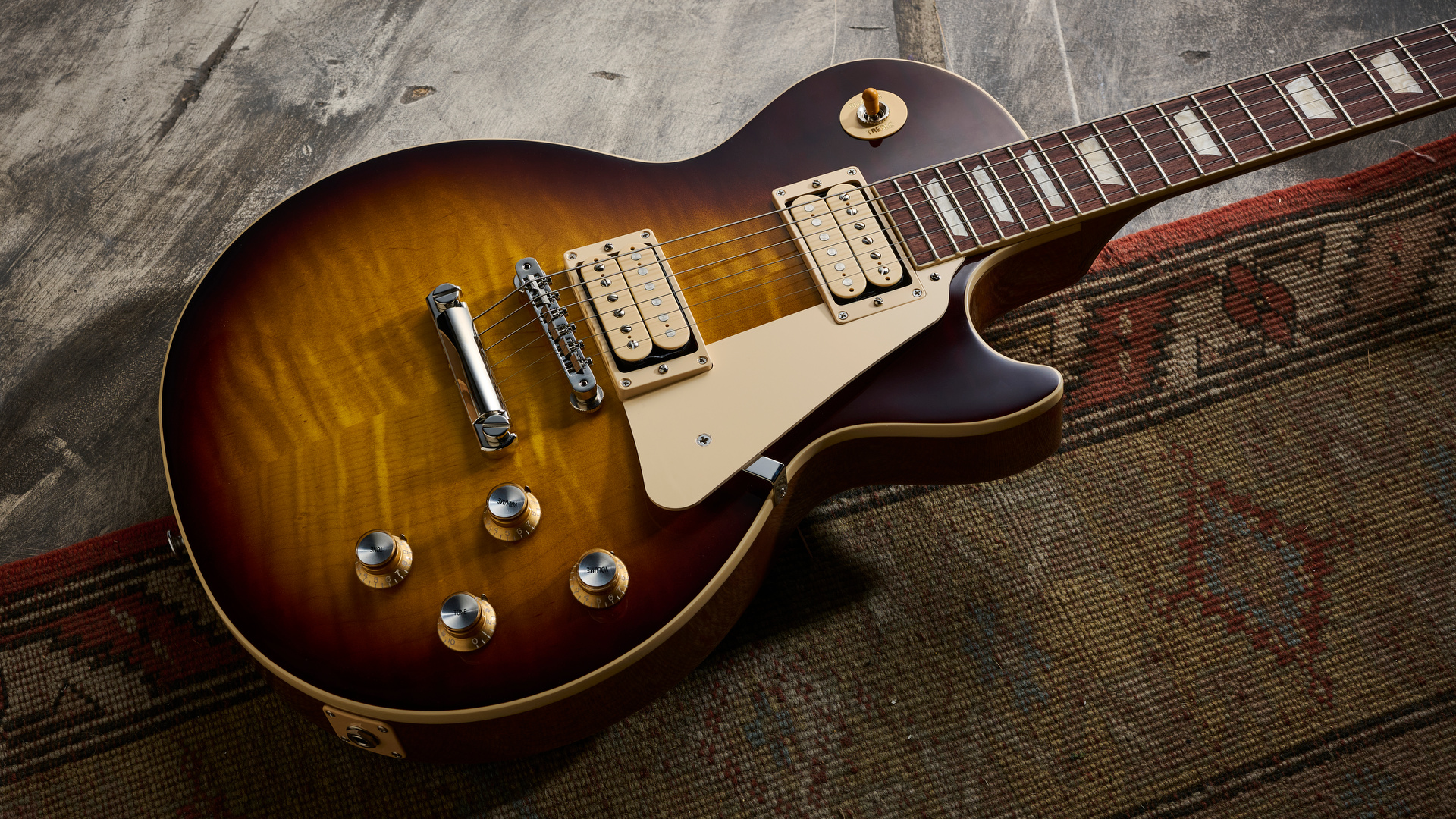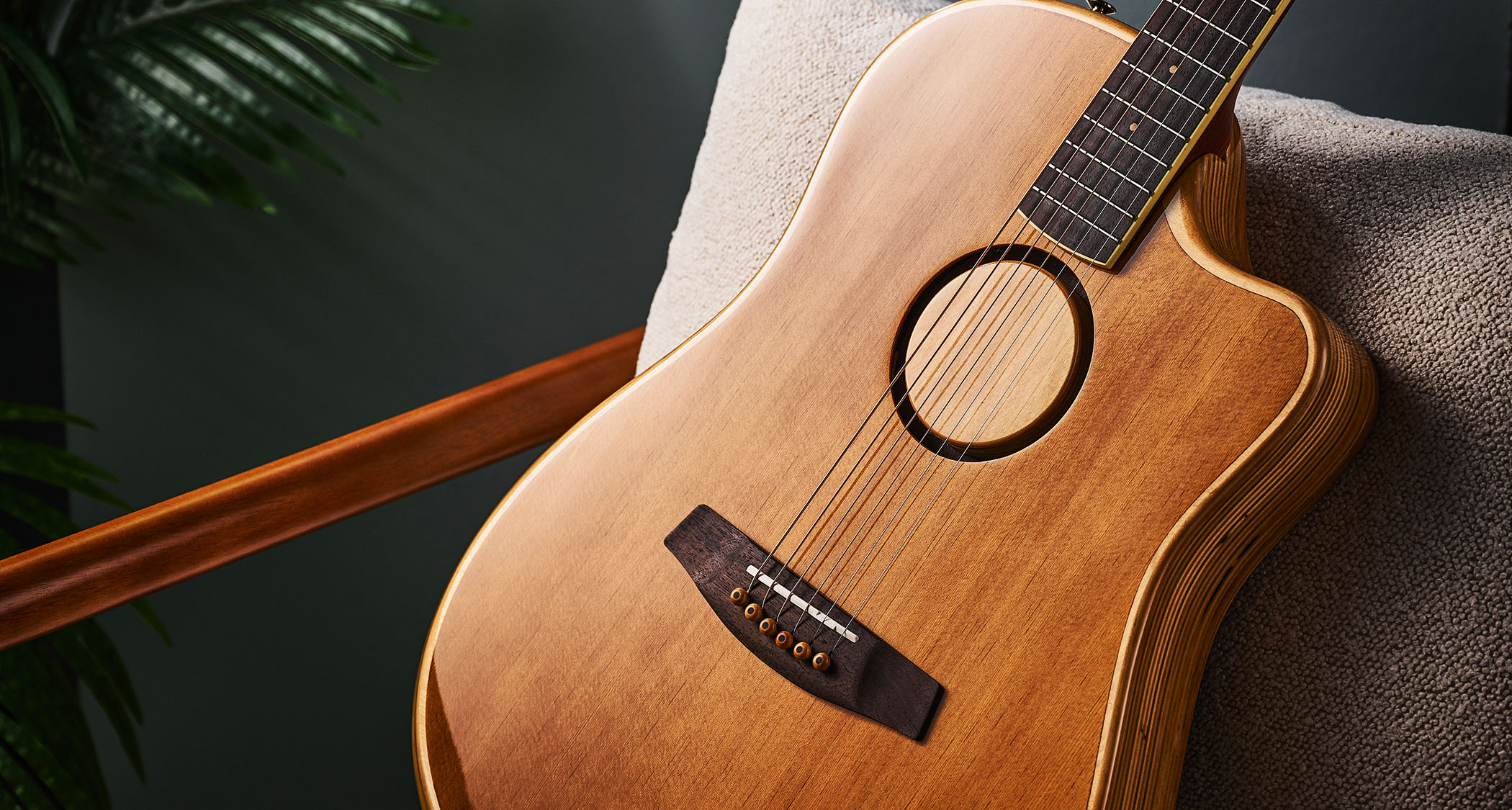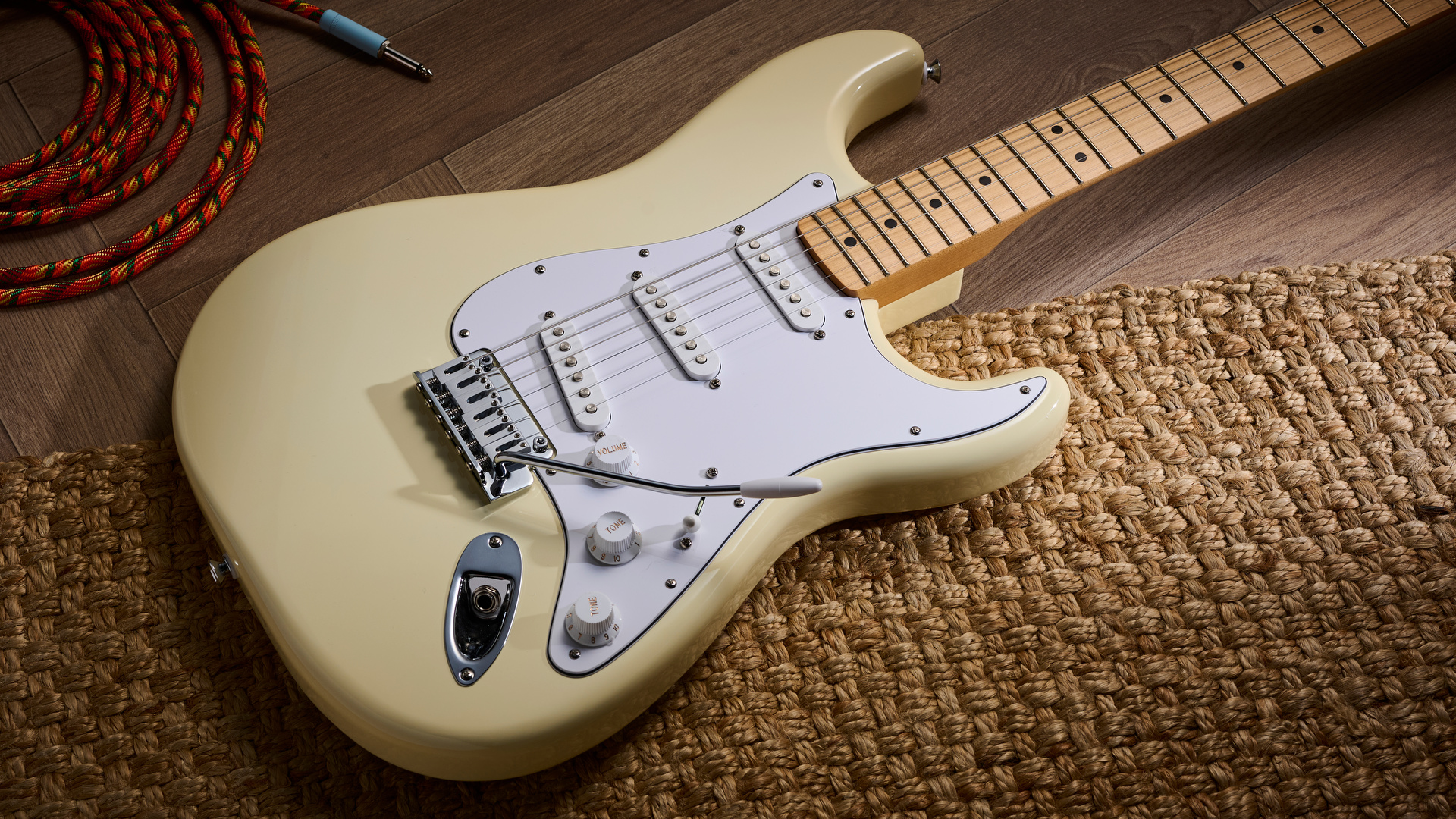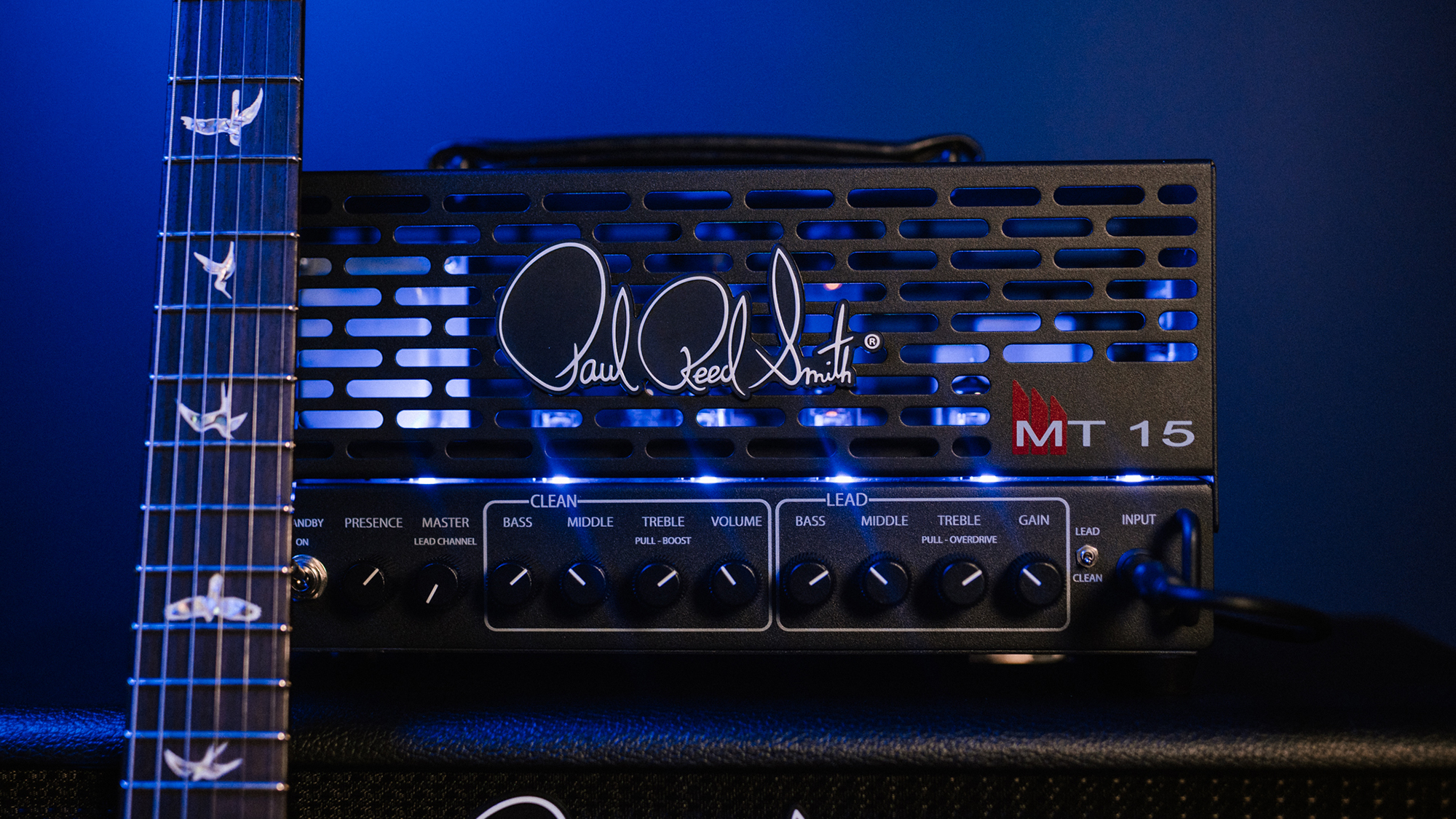Guitar World Verdict
Impressive guitar with bags of tonal options and great playability, in no small part thanks to that Axcess heel.
Pros
- +
You've got a great range of tones.
- +
Out-of-phase middle position has a subtle cocked wah vibe.
- +
Easy to play and thinner body makes it lighter than some LPs.
- +
Upscale finish with lots of gold, lots of binding.
Cons
- -
The price tag.
- -
No piezo.
You can trust Guitar World
Signature guitar design is easy, isn’t it? Take an off-the-peg model, give it a lick of paint, put a squiggle on it somewhere, and talk up the proprietary tonal benefits until the cash rolls in?
Well, actually, no. If you know anything about Rush legend Alex Lifeson, it should be that he has an eye for detail when it comes to the music he makes, and the instruments he uses to make it, so a guitar bearing his name is likely to be a little bit outside of the norm.
Sure enough, this is evidenced by his Gibson and Epiphone signature models. The former first appeared in 2011 as a Custom Shop model, and in 2021 Gibson and Alex ported many of that high-end model’s features – most notably the Les Paul Axcess heel and Graph Tech Ghost-equipped vibrato – over to Epiphone for the Alex Lifeson Les Paul Axcess Standard.
The guitar was a hit, offering some out-of-the-ordinary features at a reasonably affordable price point. And, now, Epiphone has turned its attention to the tuxedo model, putting the Lifeson styling into a Les Paul Custom.
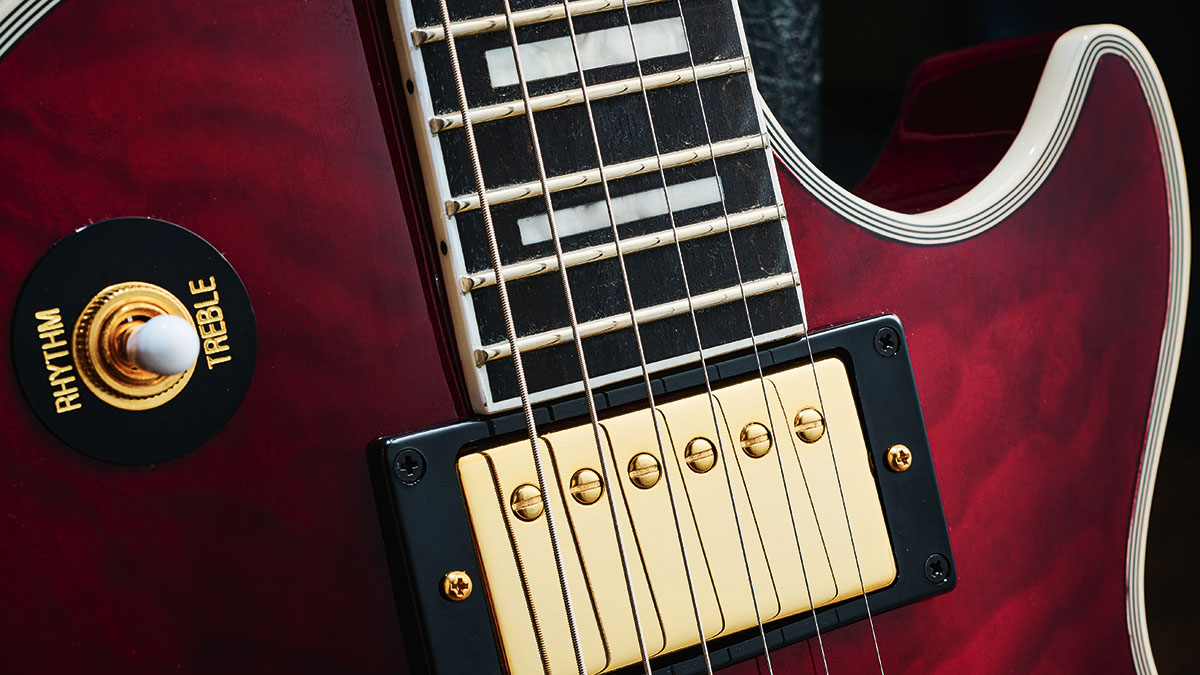
Here, we get a mixture of improvements, similarities and one or two big differences (we’ll get to those). It starts with the thinner mahogany body design. That’s clad with a AAAA-grade, quilted maple veneer and offered in the Lifeson-approved Ruby red finish.
This being a Custom, the laurel fingerboard of the Standard model has been swapped for a darker, arguably classier‑looking piece of ebony, and, of course, there’s the split diamond inlay on the headstock.
There are some more subtle visual tweaks, too: the multi-ply body binding, LP Custom block inlays (rather than trapezoids), and black top hat knobs where the Standard had gold. Talking of gold, there’s a lot of it, courtesy of the covered Epiphone Ceramic Pro (neck) and ProBucker 3 (bridge) pickups, Grover Rotomatics and the Floyd Rose 1000 vibrato.
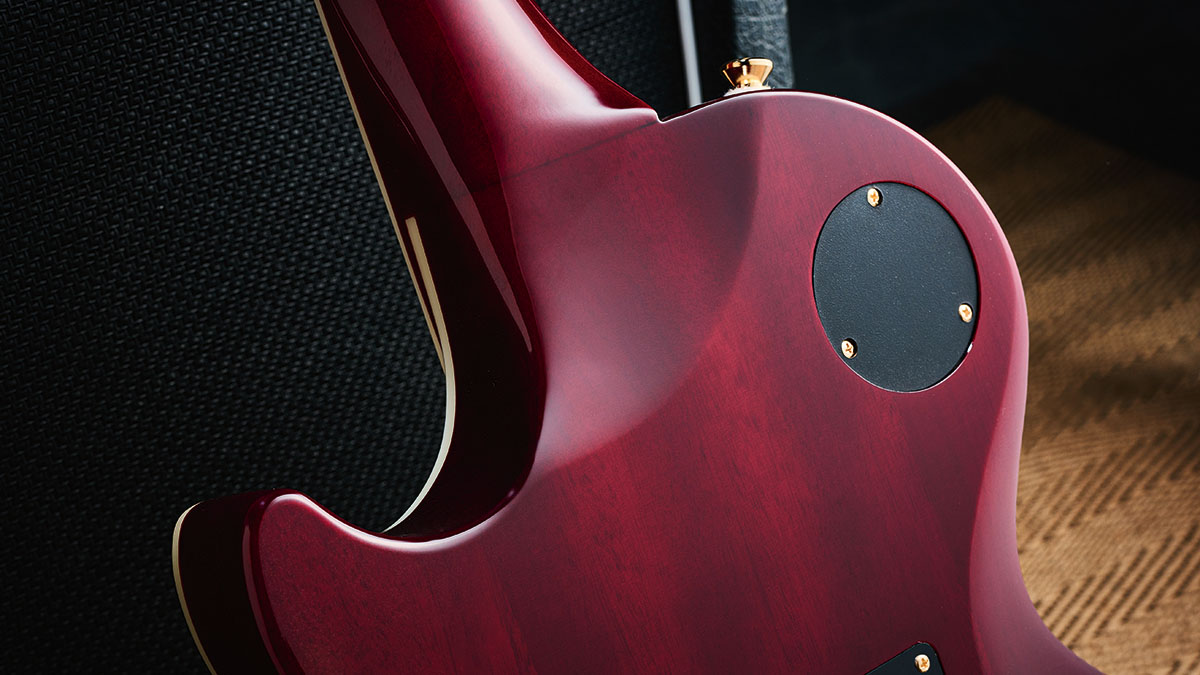
Which brings us to the elephant double-locked in the room because the Custom’s Floyd Rose is just that. Gone is the Graph Tech Ghost, leaving us with a regular Floyd Rose and no piezo voice.
Given that it’s been a distinctive part of previous Lifeson models, we asked Epiphone for the reasoning: “Alex wanted something different,” we’re told, “so he went with the Custom appointments and the simplicity of just the Floyd sans piezo.”
So, bad news for Lifeson fans looking for pseudo-acoustic tones, but the good news is that the coil-splitting remains for both pickups via the push-pull volume controls. Turn to the neck tone knob and we’re rewarded with another switch, this time knocking the neck pickup out of phase when engaged.
However, a second gripe also emerges when you look at the price. The 2021 standard came in at $899/£799, while the Custom has a whopping jump of around 80 per cent at $1,299/£1,449.
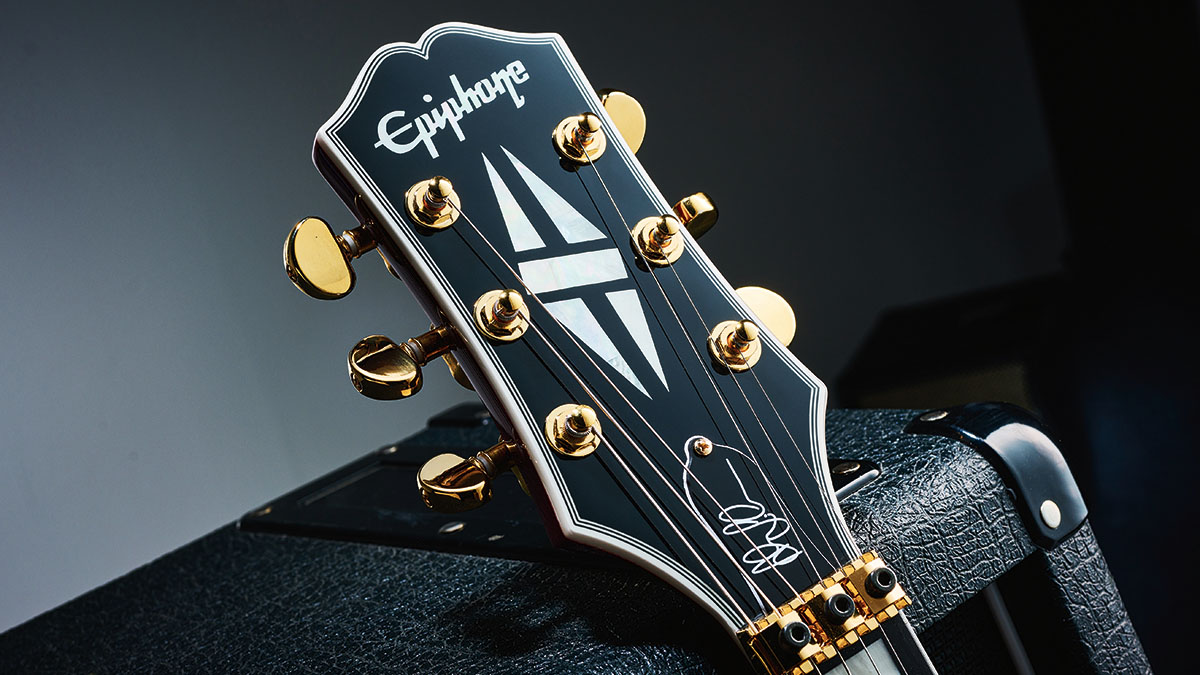
Feel & Sounds
Still, we’re here to look at what we could be buying, rather than what we could have won. Out of the case, Alex’s Custom cuts a sharp, impressive figure. The Ruby finish is much more at home with what we’re used to seeing him play, and while the sheer presence of a Floyd Rose on a Les Paul is divisive, there’s no denying that the blend of gold, black appointments and red quilt veneer give this guitar a striking ‘sports car’ visual that will be a magnet for some players out there.
It’s a sturdy but not overly bulky guitar that is balanced on the strap and isn’t going to curve your spine after long playing sessions
The upmarket feel continues with the playability, too. There might not be any weight relief by design, but we get it by proxy instead with the thinner body and a large amount of wood chewed out to make way for the Floyd. It’s a sturdy but not overly bulky guitar that is balanced on the strap and isn’t going to curve your spine after long playing sessions. The comfort is aided by the same belly carve we’ve seen on the Standard, also nestling in nicely when played seated.
Then there’s the neck, whose profile is described by Epiphone as ‘rounded’ but in reality is a fairly modern-feeling, medium-thin profile that maintains a bit of chunk in the palm.
Epiphone has hit something of a stride in the past 18 months, and the ebony fingerboard on our review model follows the likes we’ve seen on the Adam Jones and Jerry Cantrell Les Paul Custom models. Combined with the medium-jumbo frets, the journey around the fretboard is smooth and glassy with no hint of grit.

That gets even better when you venture to the upper frets and discover the Axcess heel. It’s really a joy to play, with the neck flowing seamlessly into the body for a smooth take-off in a way that isn’t there on regular LPs. It’s a similar story with the Floyd Rose, which arrives with us perfectly balanced and takes care of tuning business even after some heavy-handed divebombing.
Tonally, there’s a lot on offer. The neck pickup packs a punch with a slight compression to our ears, which we think will help it cut through when played clean. It’s got some brightness (for its position), too, maintaining its clarity even under heavy gain, and with the height adjusted certainly works well with the bridge position ProBucker.
With the coil-split engaged, we’re transported to some convincing neck single-coil tones, and these are enhanced with a funky quack if you flip the phase and put the selector in the middle position.
There’s clarity and heft with an edge of aggression, but it’s coupled with some headroom and dynamics so you don’t feel like you’re playing a full-metal magnet
Talking of which, if you’re the kind of player who skips over the midpoint on a Les Paul, the full humbucker sounds, switched out of phase with each other, might be enough to make you revisit it. With this voicing, it’s a bit like having a bandpass filter or a more subtle cocked-wah in the chain.
Finally, there’s the bridge pickup in isolation, which we’ve seen before in many Epiphones. Here, the story is very much what we’re used to – fat, meaty bridge tones that excel under medium crunch and higher gain settings. There’s clarity and heft with an edge of aggression, but it’s coupled with some headroom and dynamics so you don’t feel like you’re playing a full-metal magnet.
Verdict
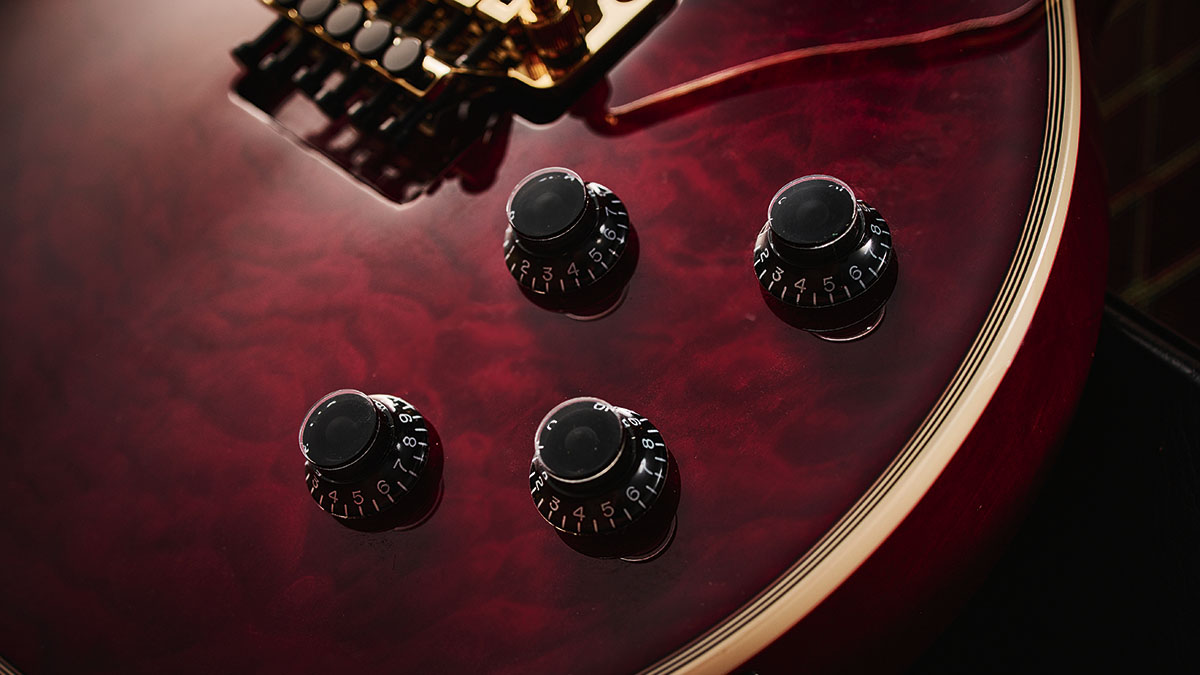
There’s no doubt this iteration of Alex Lifeson’s Les Paul has a lot to offer. The problem is that there’s no getting away from the fact that a couple of years ago, Rush fans could pick up a similar guitar – admittedly with less visual appeal – for a lot less money.
At the time of writing, there are some brand-new Standard models still available in retailers, with used prices heading skywards. Which begs the question, does the existence of the Standard add to the Ruby red face of the Custom by being too good for too little money?
Or is the Custom a victim of increased component and material costs, wars and global inflation? Whatever the reasoning, if you can live without the piezo and take the Alex Lifeson Les Paul Custom Axcess at face value, it’s a great guitar. It all depends on how big an ‘if’ that is for you.
Specs
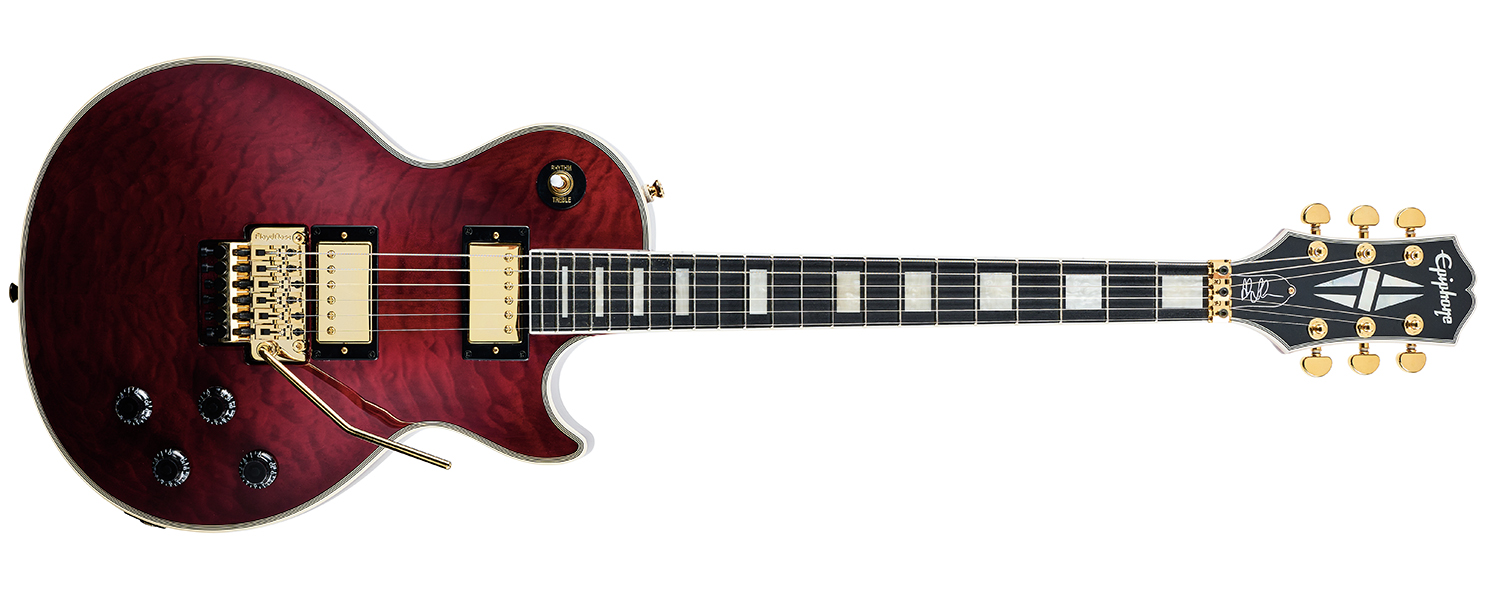
- PRICE: $1,299 / £1,449 (inc case)
- ORIGIN: China
- TYPE: Single-cutaway solidbody electric
- BODY: Mahogany with AAAA quilt maple veneer
- NECK: Mahogany, ‘rounded’ profile, glued-in with Axcess Contour Heel
- SCALE LENGTH: 628mm (24.75”)
- NUT/WIDTH: Floyd Rose R4 Locking/43mm
- FINGERBOARD: Bound ebony, pearloid large block inlays, 305mm (12”) radius
- FRETS: 22, medium jumbo
- HARDWARE: Floyd Rose 1000 series double-locking vibrato, Grover Rotomatic tuners – gold‑plated
- STRING SPACING, BRIDGE: 53.35mm
- ELECTRICS: Epiphone ProBucker 3 (bridge) and Ceramic Pro (neck) humbuckers, 3-way toggle pickup selector, 2x volumes (with pull-switch coil split), 2x tones (pull switch phase on neck)
- WEIGHT (kg/lb): 4/8.8
- LEFT-HANDERS: Yes
- FINISH: Ruby – all gloss
- CONTACT: Epiphone

Stuart has been working for guitar publications since 2008, beginning his career as Reviews Editor for Total Guitar before becoming Editor for six years. During this time, he and the team brought the magazine into the modern age with digital editions, a Youtube channel and the Apple chart-bothering Total Guitar Podcast. Stuart has also served as a freelance writer for Guitar World, Guitarist and MusicRadar reviewing hundreds of products spanning everything from acoustic guitars to valve amps, modelers and plugins. When not spouting his opinions on the best new gear, Stuart has been reminded on many occasions that the 'never meet your heroes' rule is entirely wrong, clocking-up interviews with the likes of Eddie Van Halen, Foo Fighters, Green Day and many, many more. If he's not playing the guitar, you'll likely find Stuart behind the kit playing Valerie to newlyweds.
“This would make for the perfect first guitar for any style of player whether they’re trying to imitate John Mayer or John Petrucci”: Mooer MSC10 Pro review
“The most in-demand mods straight from the factory”: Fender’s elevated Player II Modified line brings the firm’s most sought-after guitar upgrades to the masses
